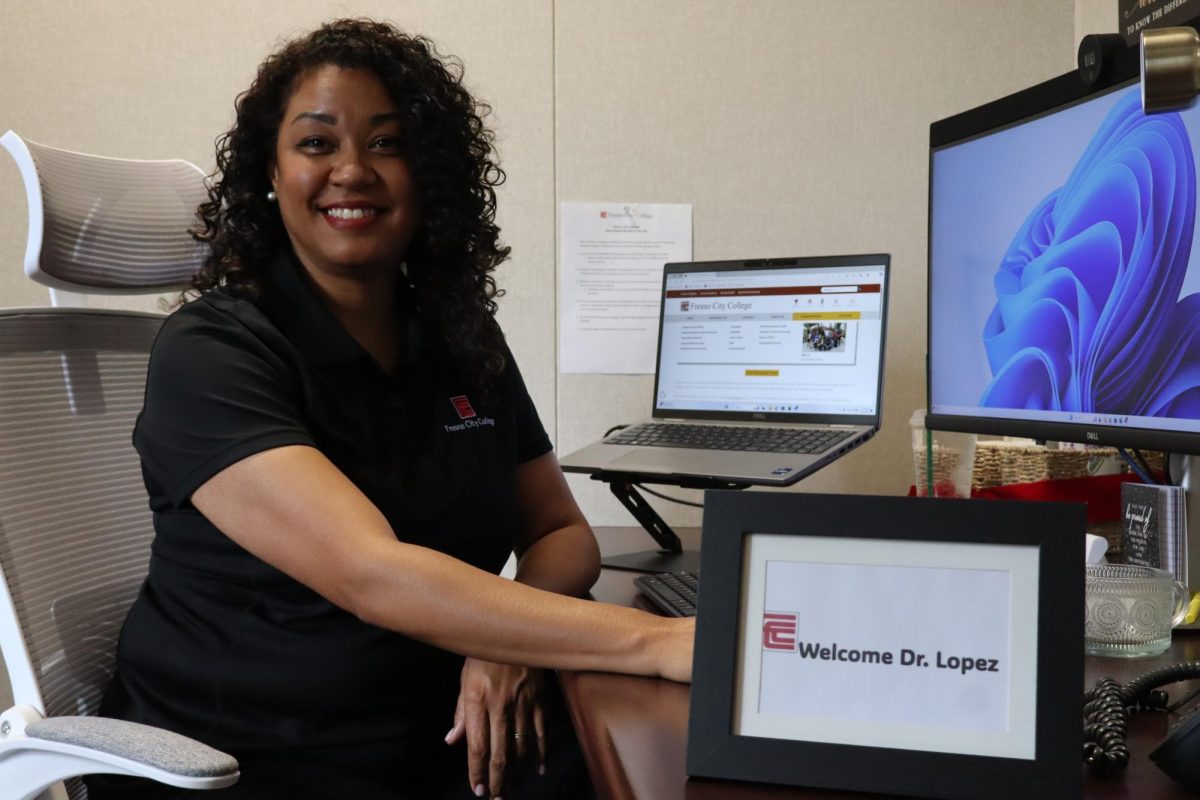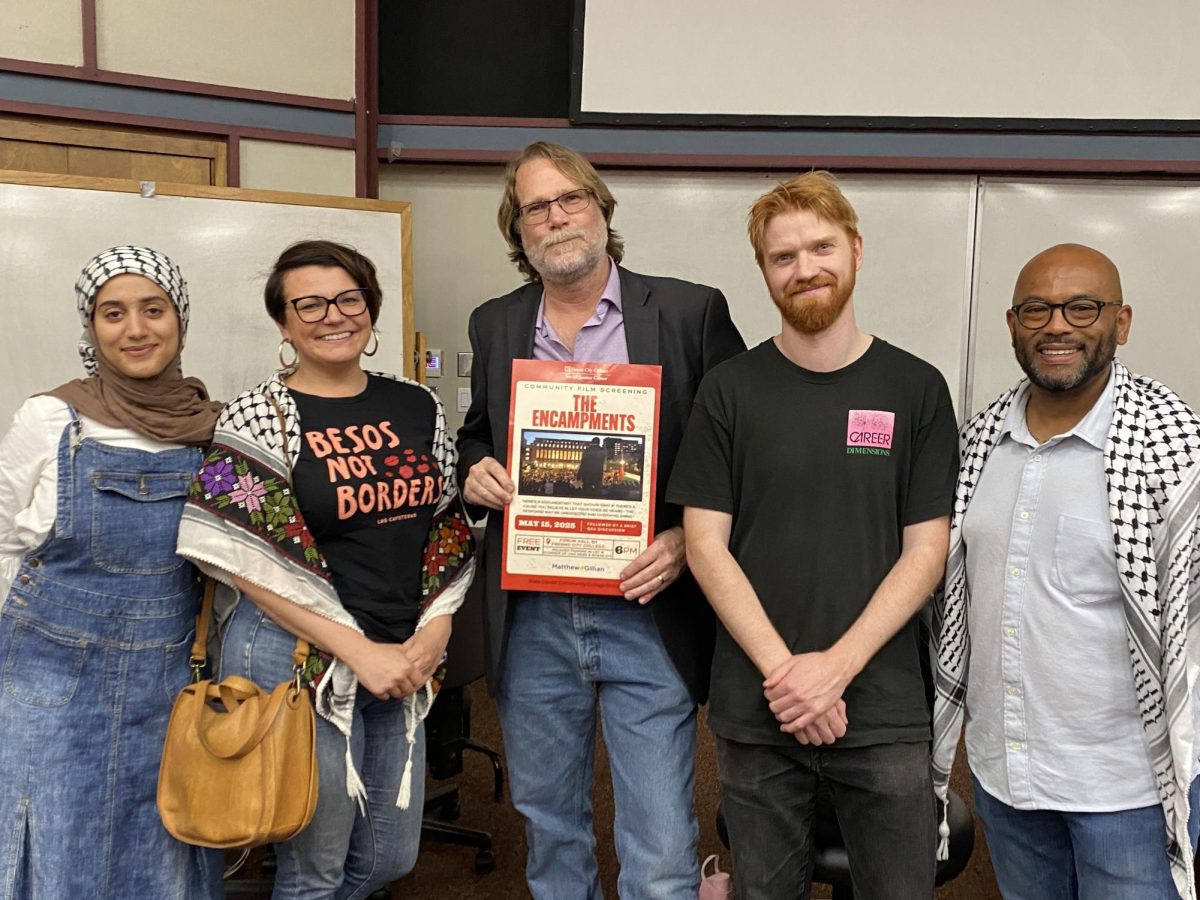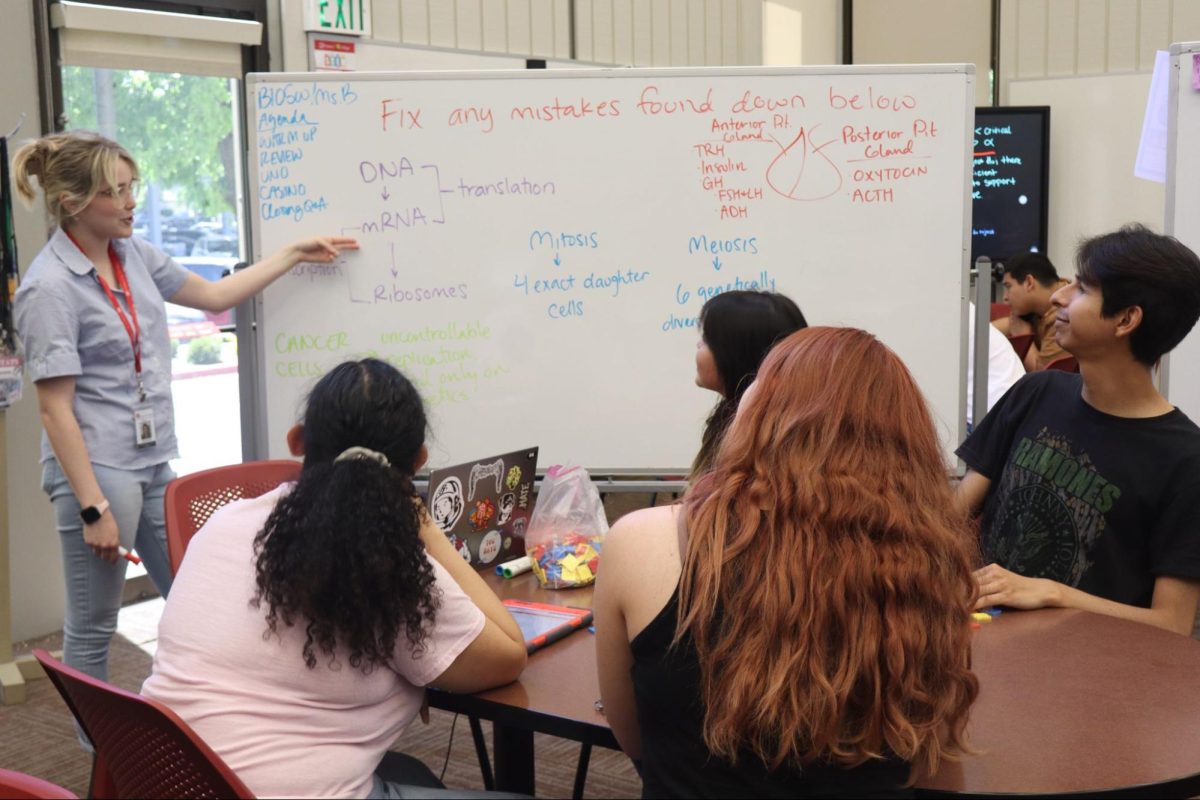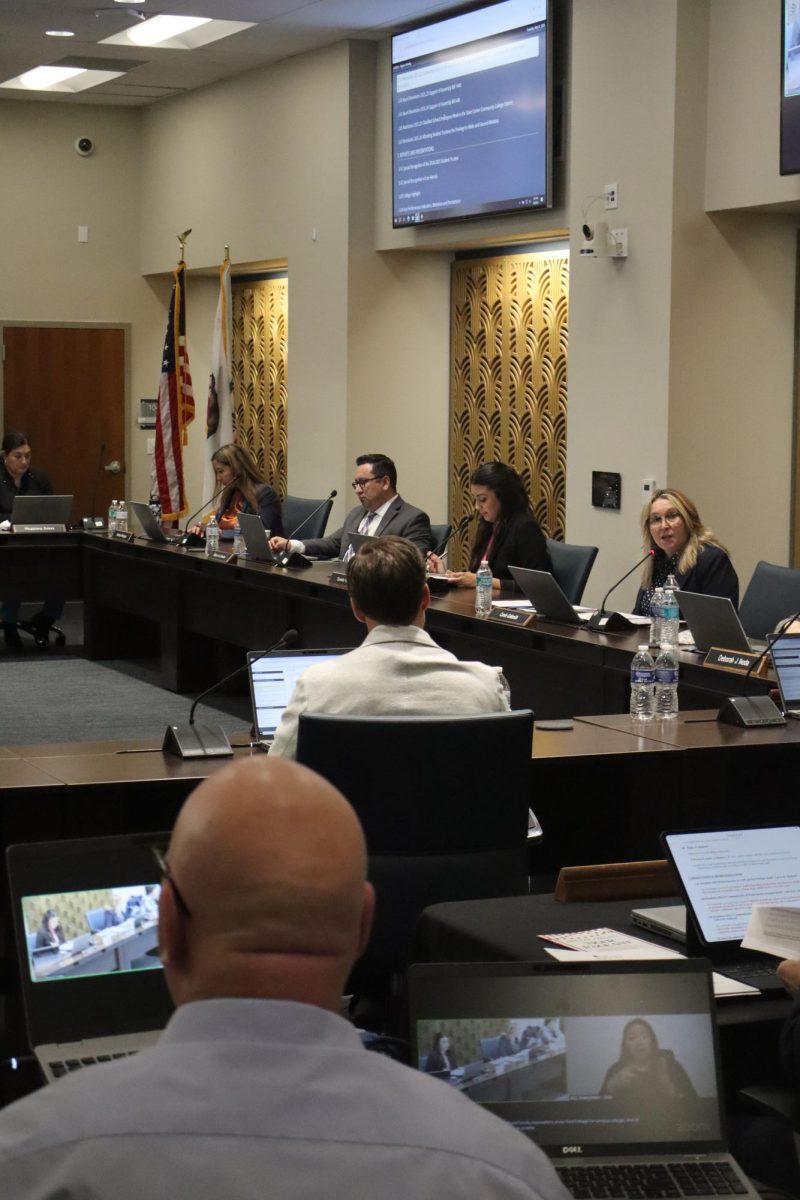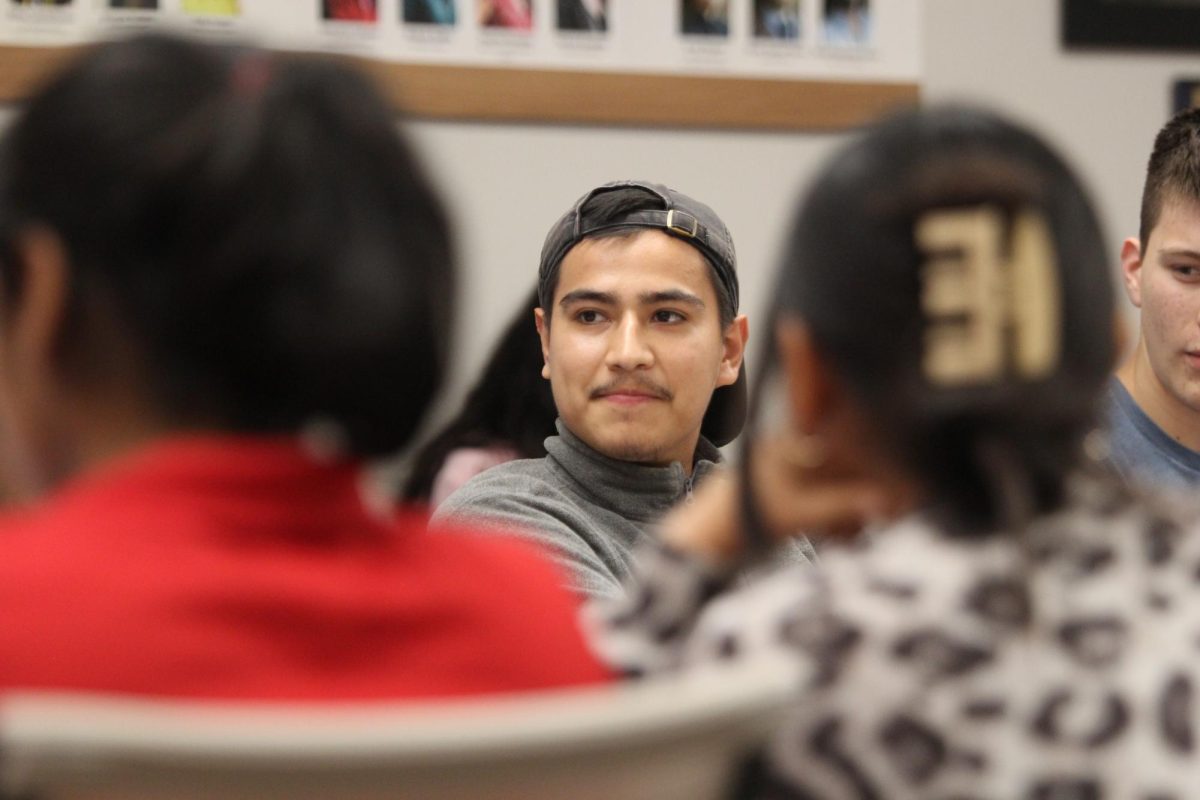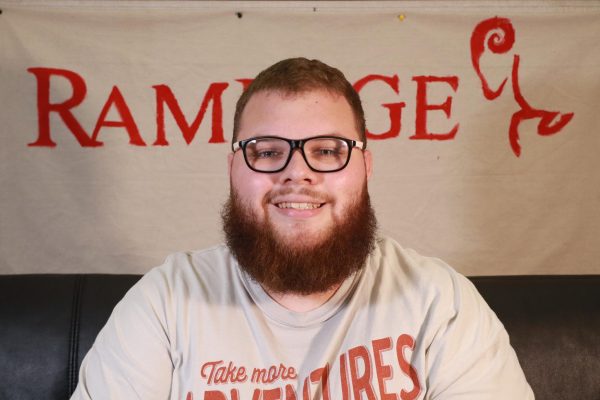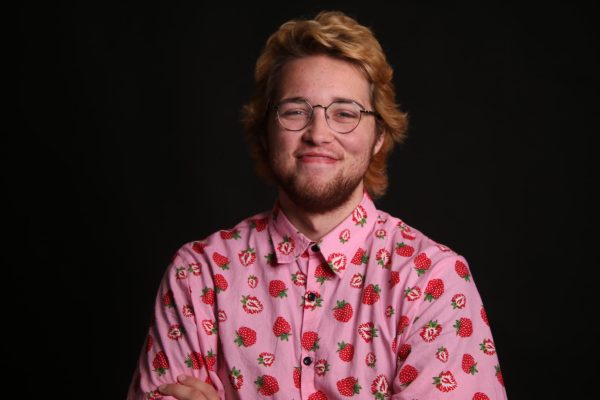What is a basic needs director:
Fresno City College hired Kizzy Lopez as the college’s first Basic Needs Director to address the growing demand for support services amid increasing challenges faced by the student population.
The goal of a Basic Needs Director is to make accessing food, housing, childcare, mental health and other basic services more centralized at FCC, to avoid having students go to multiple departments to access support services.
“Part of my role will be to help reconfigure this building and so that those resources are centralized here, [so] that we would have liaisons from other departments,” Lopez said.
At this time, certain housing programs are under the Department of Equality. The goal for Lopez is to take all the services on campus and put them under one basic needs department to expedite access.
“The goal is to create a one stop shop of basic needs for students,” Lopez said. “Food like the pantry and other resources [Psychological and Health Services] will come under basic needs. That’s the beginning.”
Along with centralizing services for students, Lopez wants to work with other programs that are active at FCC so that the campus itself can better meet the needs of the students.
“We’re going to be working very closely with programs like financial aid… because they’re helping us disperse the funds, working with special programs like EOPS, Rising Scholars, Dreamers,” Lopez said.
The basic needs department would like to support student populations that are most likely to be facing housing issues.
“There are particular populations that are really vulnerable to experiencing housing and food insecurity, like veterans, LGBT foster groups like that,” Lopez said. “We’ll be working really closely with those programs as well.”
This engagement not only builds connections but also provides essential insights about the needs of the student body.
“Working closely with existing programs and encouraging student involvement as peer mentors can foster a supportive community while providing valuable feedback to improve services,” Lopez said.
It’s not about having a pre-cut, cookie cutter solution, Lopez said. The solution for each student should be tailored to their unique needs.
“The goal… is to do an individualized intake, assess the student situation and see what solutions we can come up with,” Lopez said.
Why Was She Hired:
Prior to FCC, Lopez worked in higher education for 18 years at Clovis Community College, Fresno Pacific and Fresno State.
During that time, Lopez advocated for foster and homeless youth, work she’s been recognized nationally for.
“It’s my research. I’ve done legislative advocacy around it. I’ve developed new programs and services,” Lopez said.
The work is personal for Lopez. She was formerly in foster care and experienced homelessness while attending community college.
She would often find a singular bathroom and take a ‘bird bath’ shower and scavenge for food. The memory of those experiences is something that gives her deep understanding.
This lived experience gives Lopez a perspective that allows her to see students beyond a label.
“I was on the verge of doing a lot of stuff that would have changed my life. That’s the situation that our students are in right now,” Lopez said. “Remembering that really difficult time gives me great, great empathy for the students…and makes me want to work harder and work faster to help meet that need, because you live in it just a day too long, and it changes your life. You know, for better or for worse, it can change your life and I think that’s what overwhelms me in this work.”
Lopez emphasizes the importance of empowerment in education. By fostering autonomy, her belief is that education should be about offering options and support, not dictating what students should do.
Lopez aims to inspire students to chart their own paths toward success.
“We’re not here to save people, we’re here to empower them to make their own choices. It’s about offering options and support, not dictating what they should do,” Lopez said.
Issues and Solutions at FCC:
According to Lopez, the greatest need for students at FCC seems to be housing and food insecurity which is similar to what other schools are facing. The biggest issue is the amount of students who are in need of services and programs.
“In the month that I’ve been here we’ve received over 200 basic needs referrals just through Starfish,” Lopez said.
Issues revolving around basic needs go beyond students. Lopez needs to build a team to support this work.
“I need staff like yesterday. It’s a lot,” Lopez said. “So that’s really my most immediate thing; to get staff, build out the housing, build out the food, get all the right staff in place with some of my other areas, and then start to expand on things like money management, some of the programming.”
In recent years there’s been $43.5 million funding allocated to California Community Colleges annually to establish a Basic Needs Center and designate at least one staff person as the campus basic needs coordinator or director, according to the Budget Act of 2023.
“Now the campuses can do more…really good people here at Fresno City trying to do the best they can to serve students. And now there’s legislation and funding to actually put resources behind creating a center,” Lopez said.
Despite there being some work to do, Lopez is getting started by hosting panels and introducing ideas she’s used at other institutions that could be applied at FCC.
One thing that Lopez highlighted was that housing insecurity looks different for everyone.
Some people may need help for two weeks because of unforeseen circumstances. Others need fast, permanent housing. There’s not a singular solution that FCC can introduce to fix all student housing needs.
FCC’s HOPE program, which helped address housing insecurity for students, will now be known as Rapid Rehousing, Lopez said.
This program is part of legislation aimed at promoting housing stability for students in community colleges. With statewide funding, FCC can provide long-term, subsidized housing assistance along with case management support for students.
“That’s another part of my goal, is to bring back Rapid Rehousing so that we can house students who need that longer term support, but also find other housing solutions,” Lopez said. “Lives are really complex, and there isn’t a one size fits all for everybody.”
Due to the volume of students in need of housing, it’s important to Lopez that she prioritizes getting students into stable living situations.
“The goal is that we would start taking referrals again this semester, ” Lopez said.

